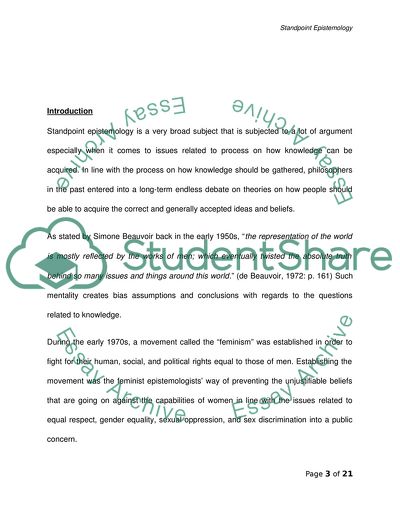Cite this document
(Standpoint Epistemology Case Study Example | Topics and Well Written Essays - 3750 words, n.d.)
Standpoint Epistemology Case Study Example | Topics and Well Written Essays - 3750 words. https://studentshare.org/philosophy/1711025-illustrate-and-debata-standpoint-epistemology
Standpoint Epistemology Case Study Example | Topics and Well Written Essays - 3750 words. https://studentshare.org/philosophy/1711025-illustrate-and-debata-standpoint-epistemology
(Standpoint Epistemology Case Study Example | Topics and Well Written Essays - 3750 Words)
Standpoint Epistemology Case Study Example | Topics and Well Written Essays - 3750 Words. https://studentshare.org/philosophy/1711025-illustrate-and-debata-standpoint-epistemology.
Standpoint Epistemology Case Study Example | Topics and Well Written Essays - 3750 Words. https://studentshare.org/philosophy/1711025-illustrate-and-debata-standpoint-epistemology.
“Standpoint Epistemology Case Study Example | Topics and Well Written Essays - 3750 Words”. https://studentshare.org/philosophy/1711025-illustrate-and-debata-standpoint-epistemology.


